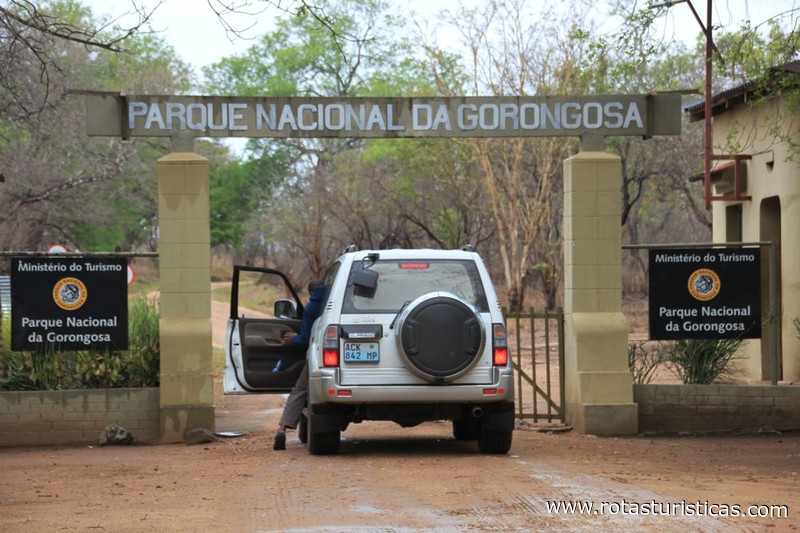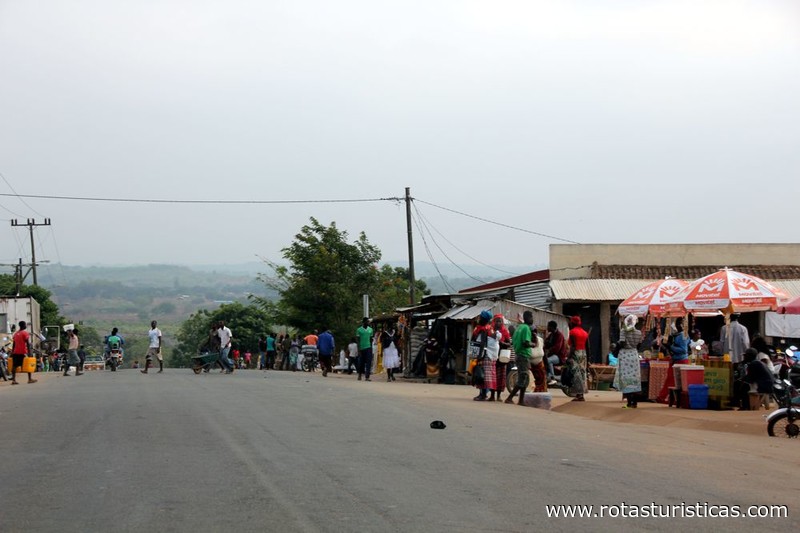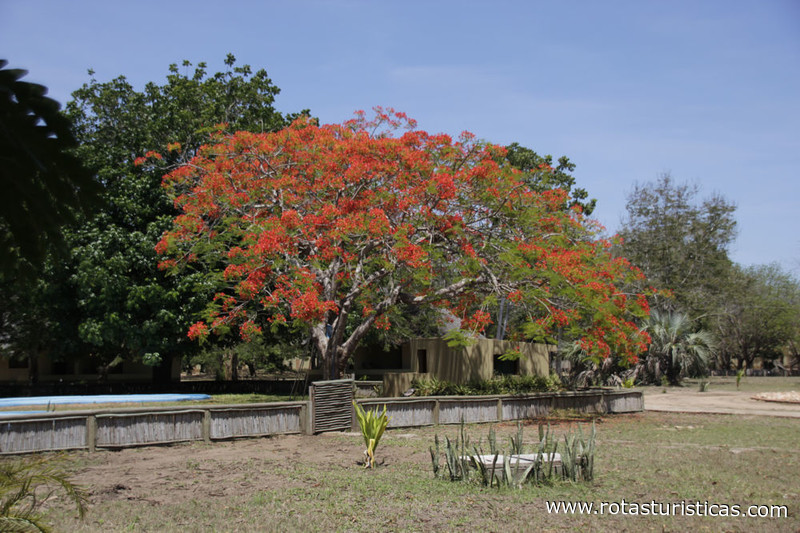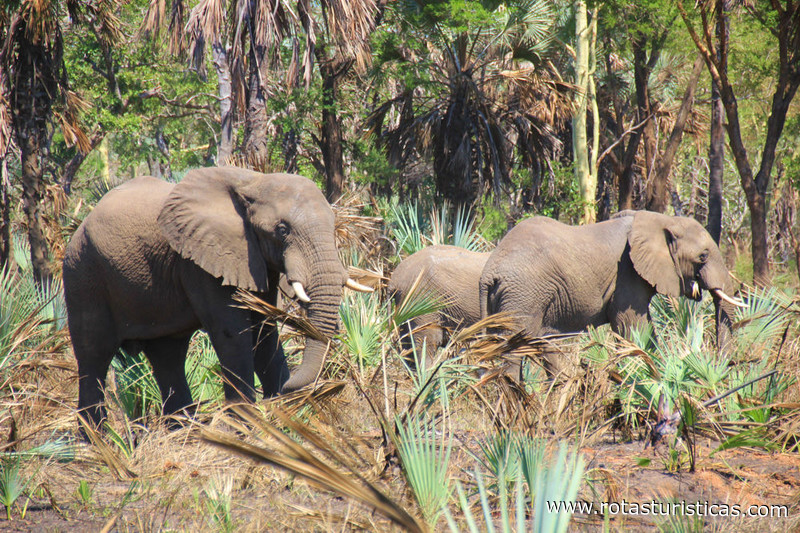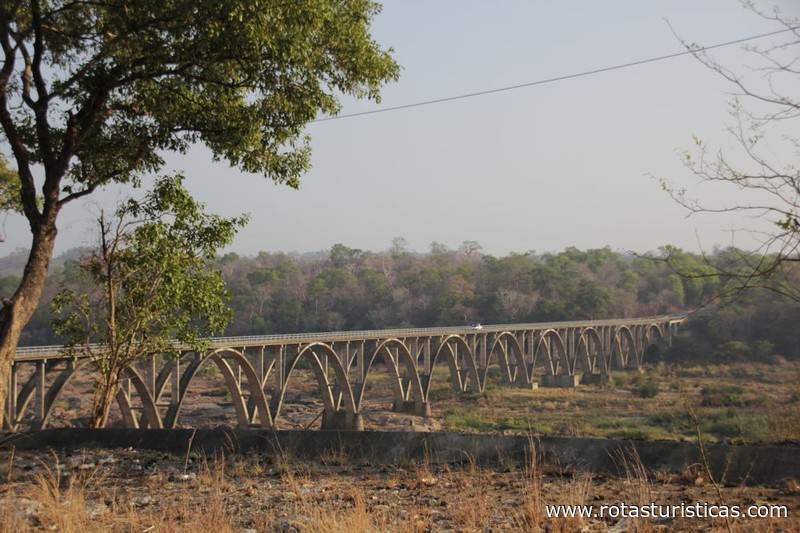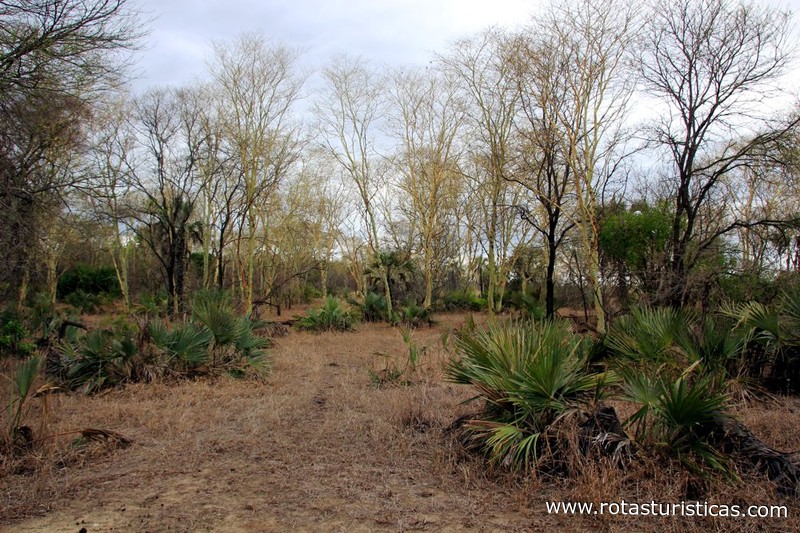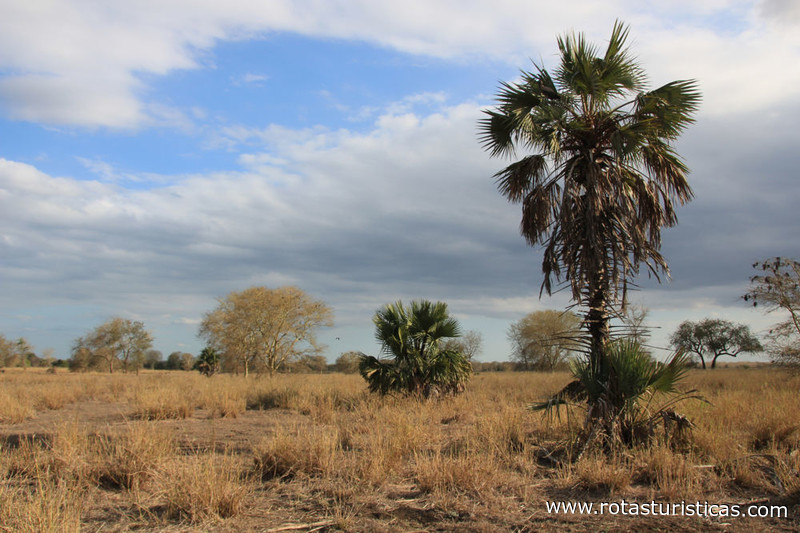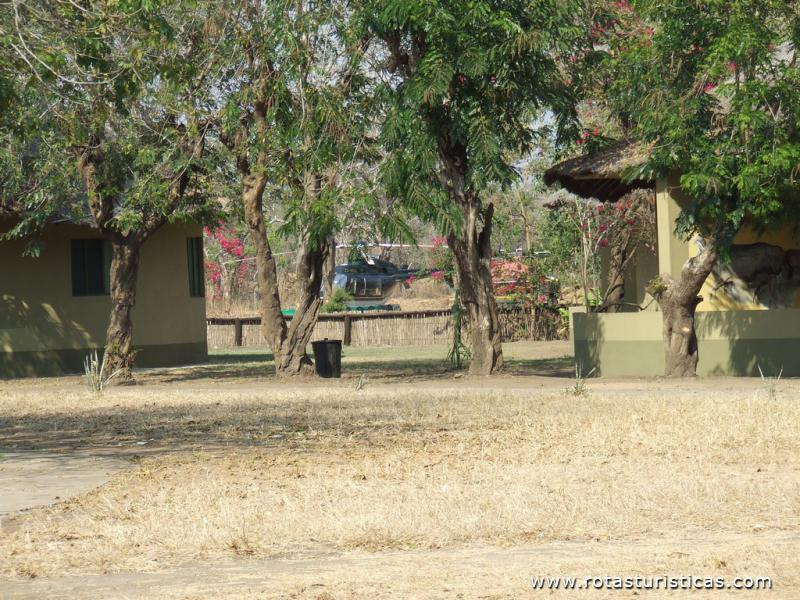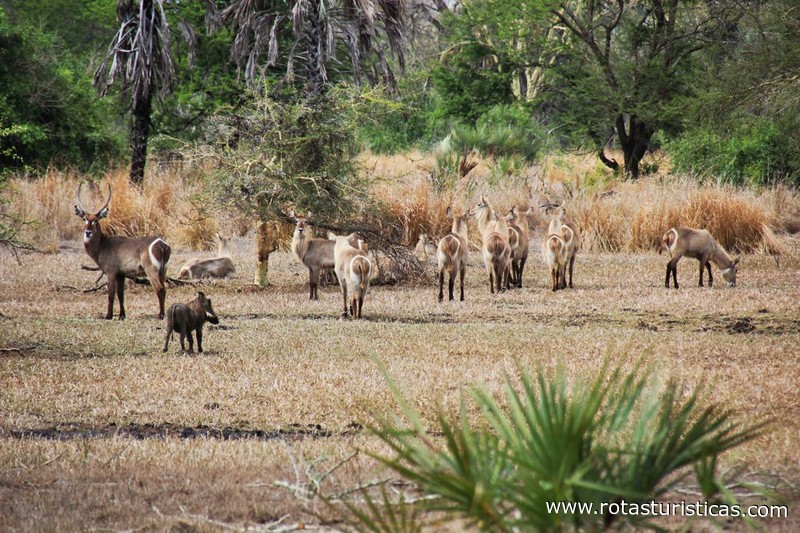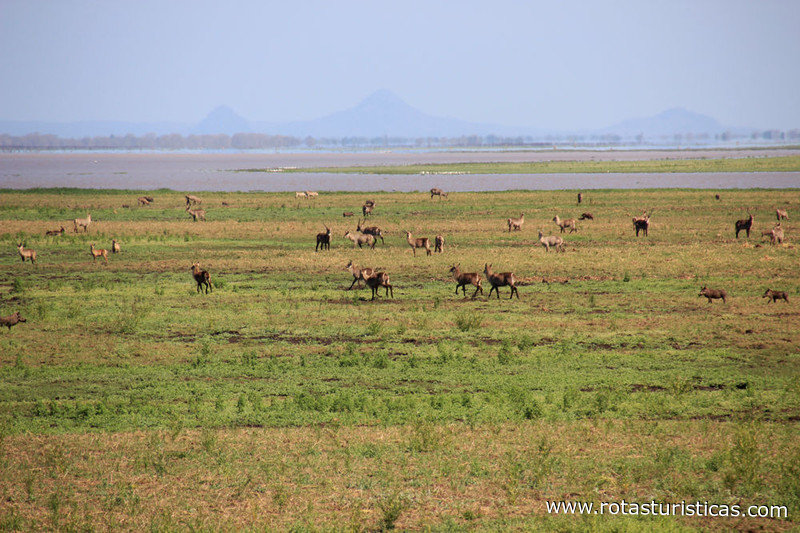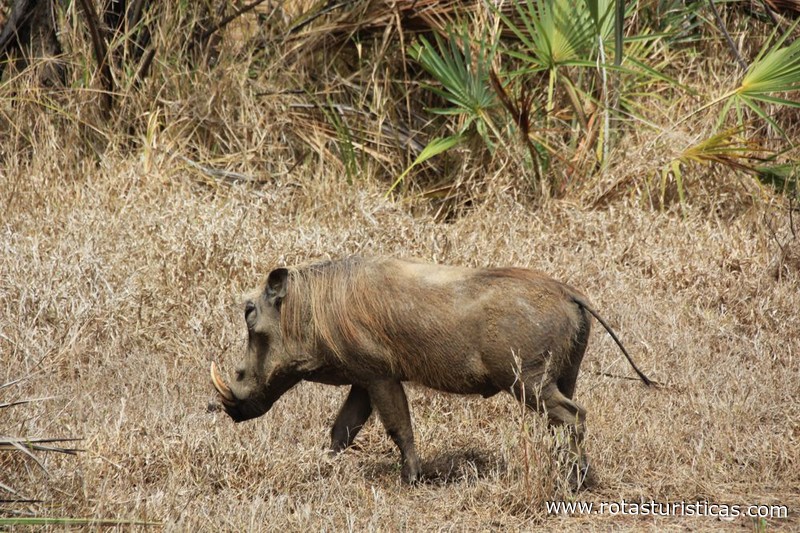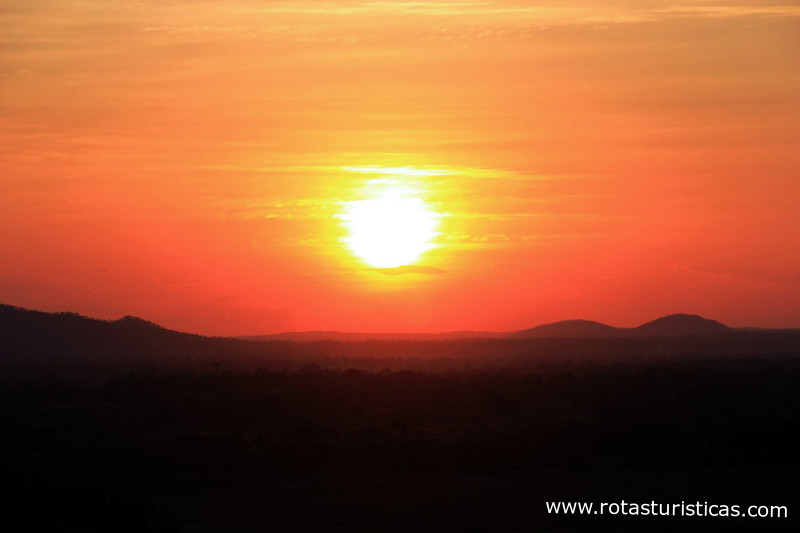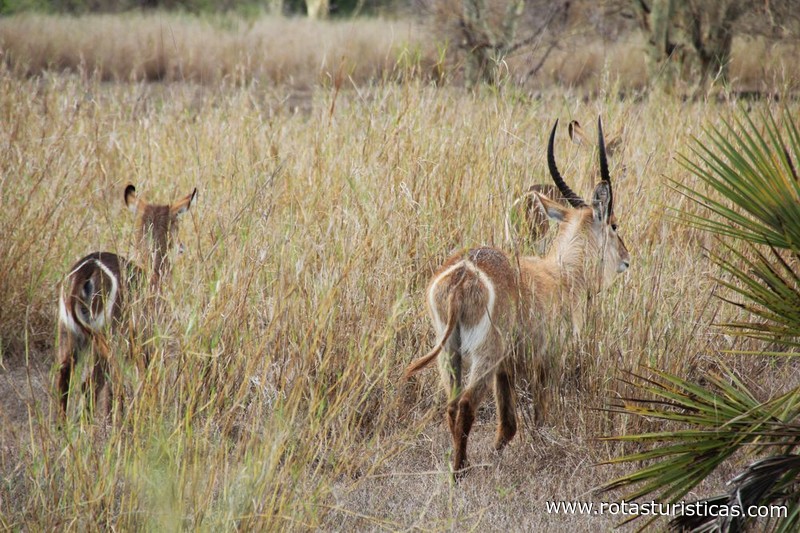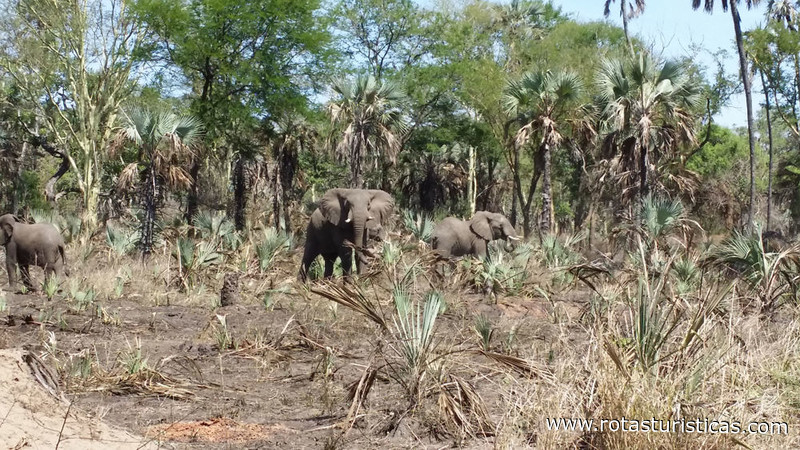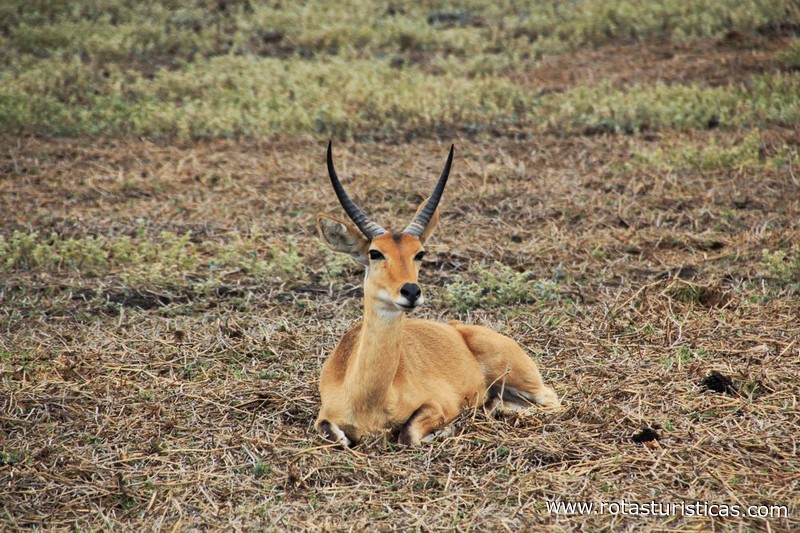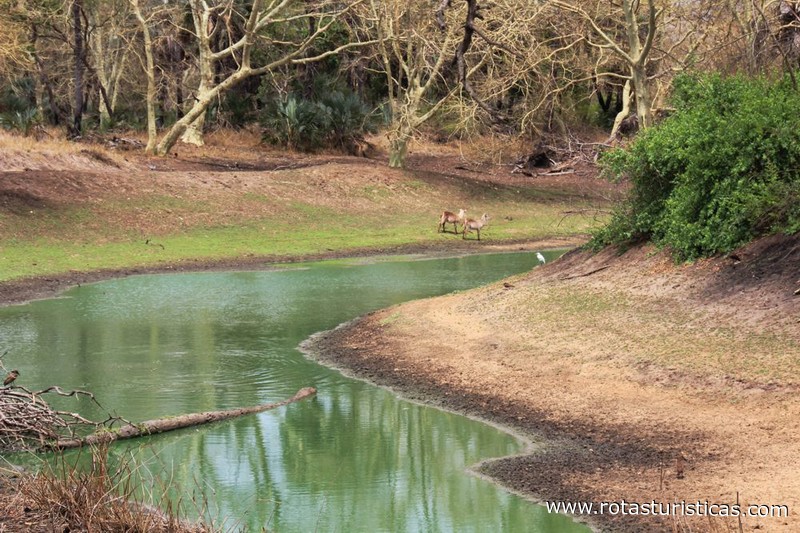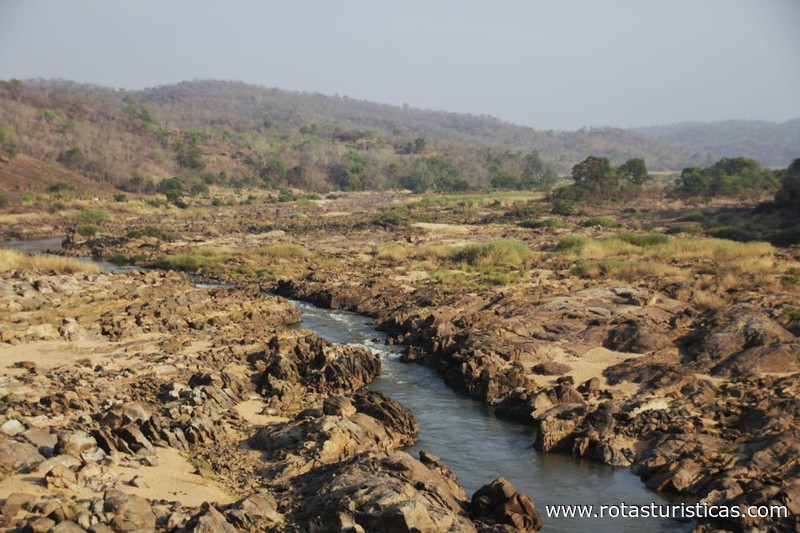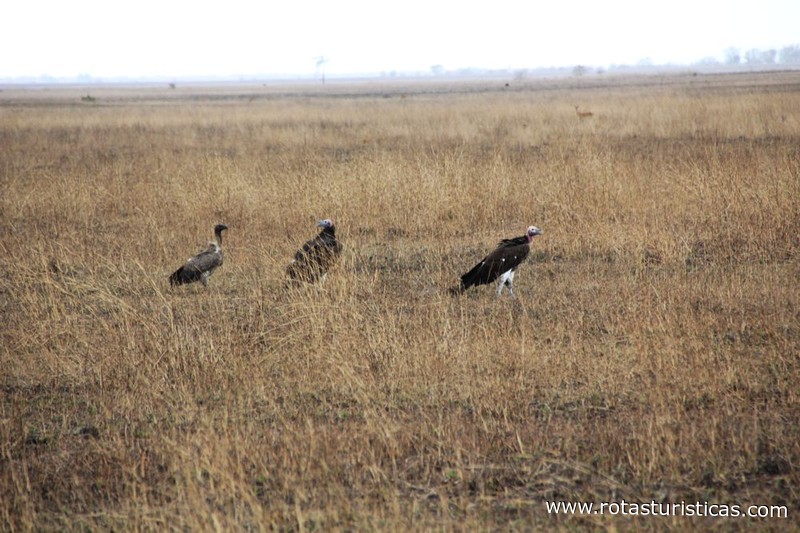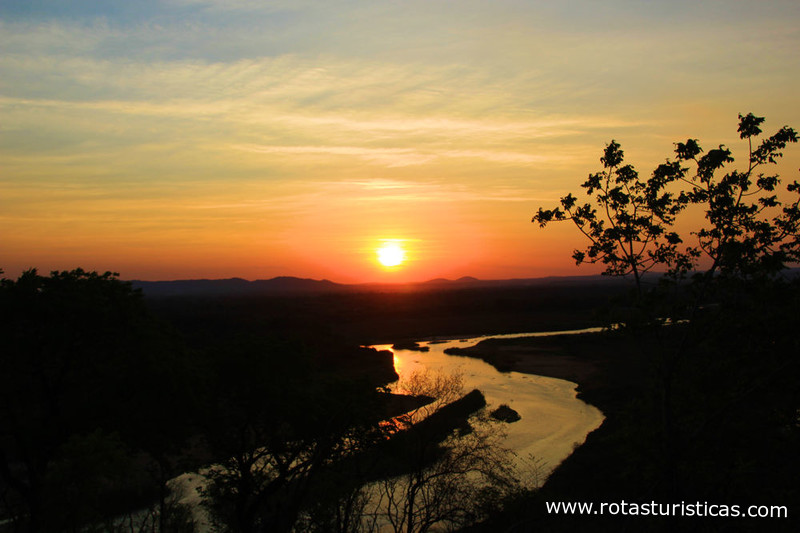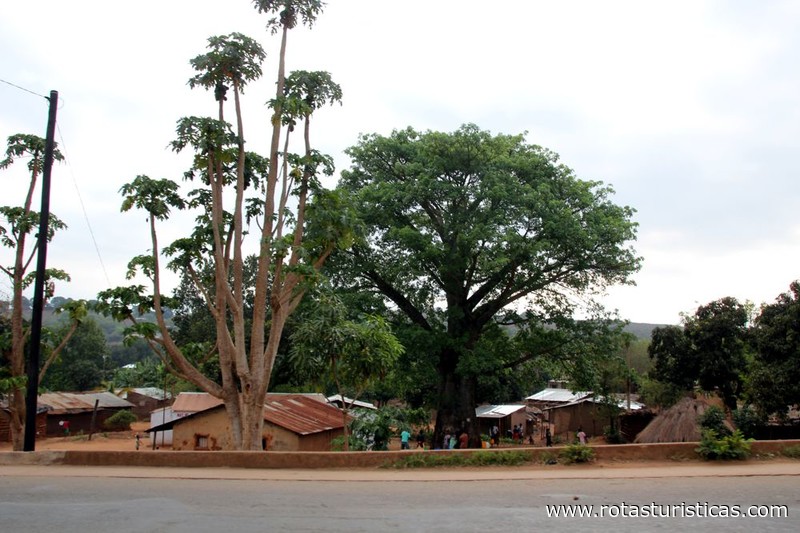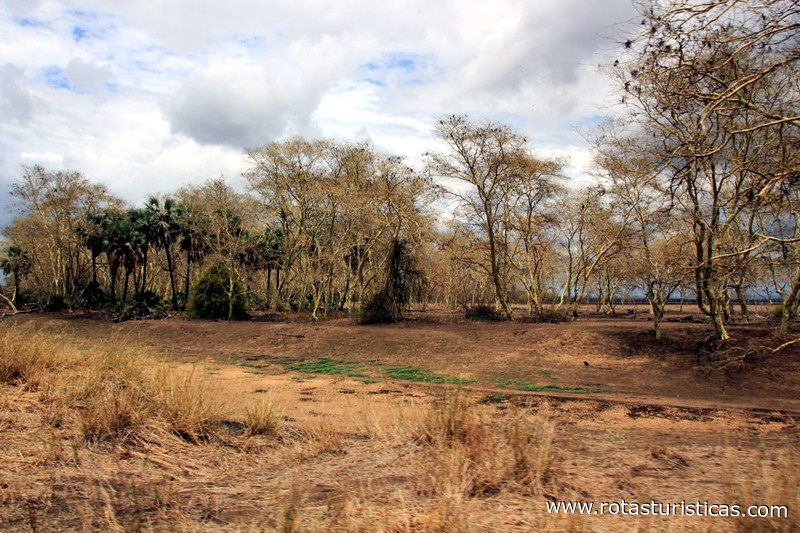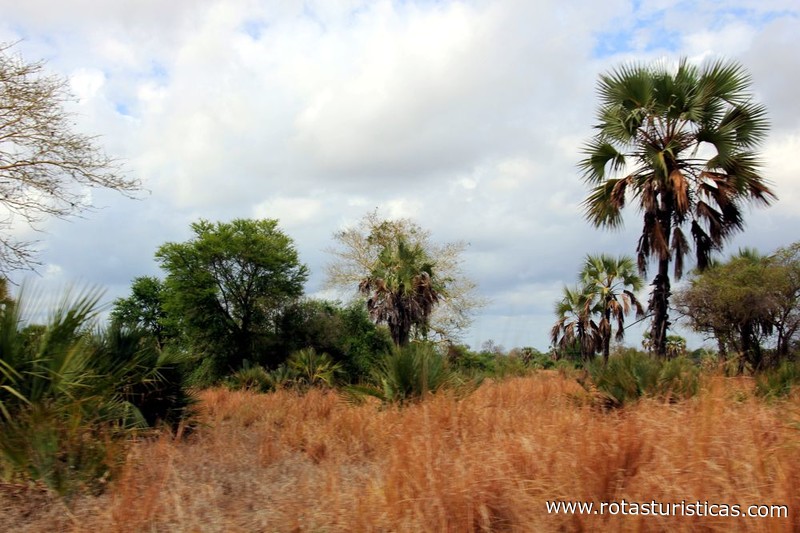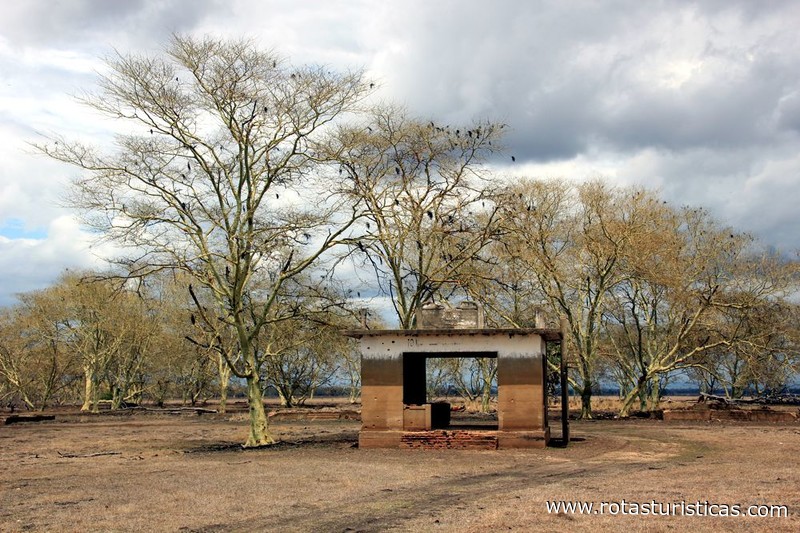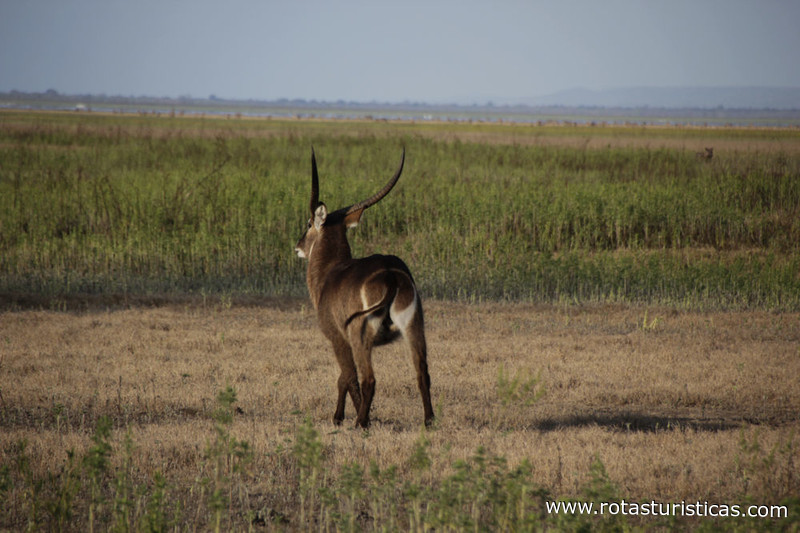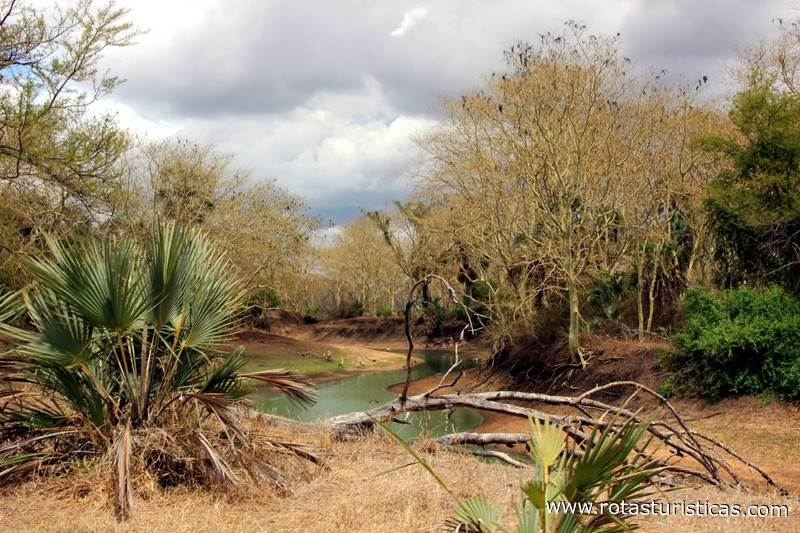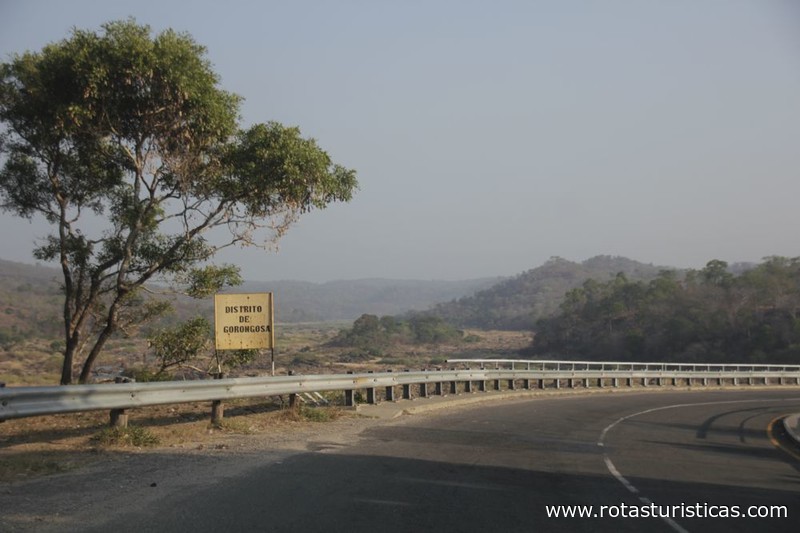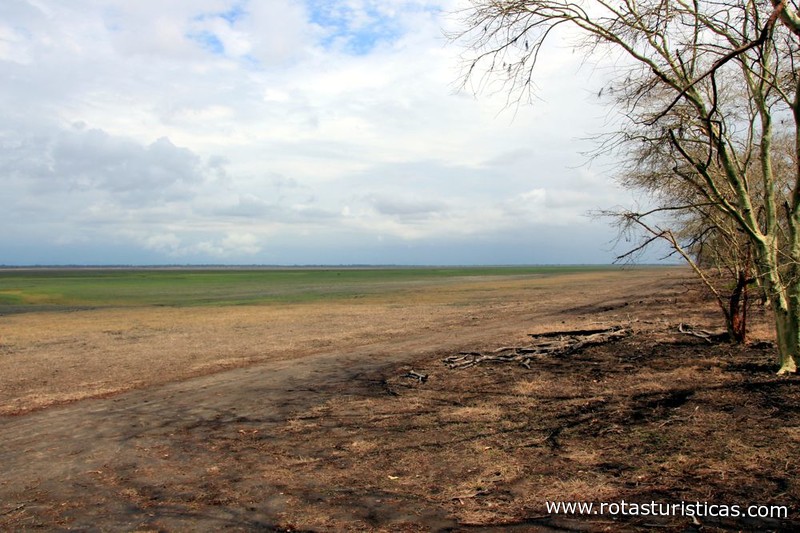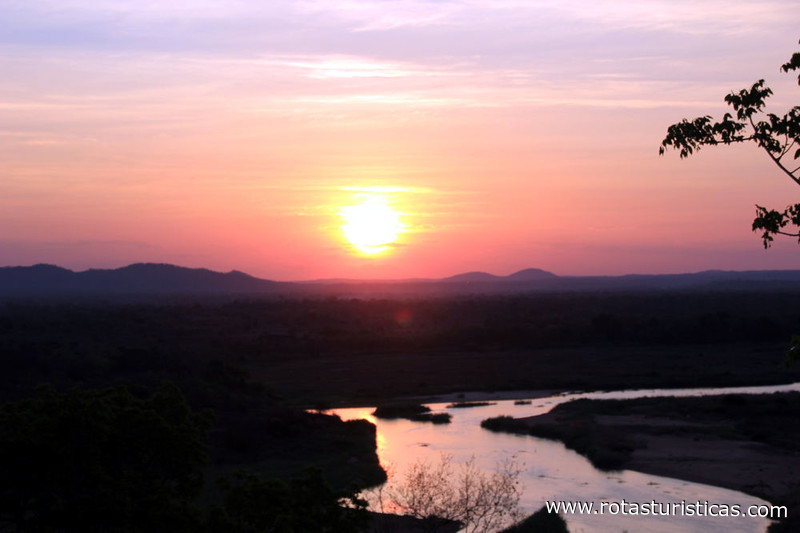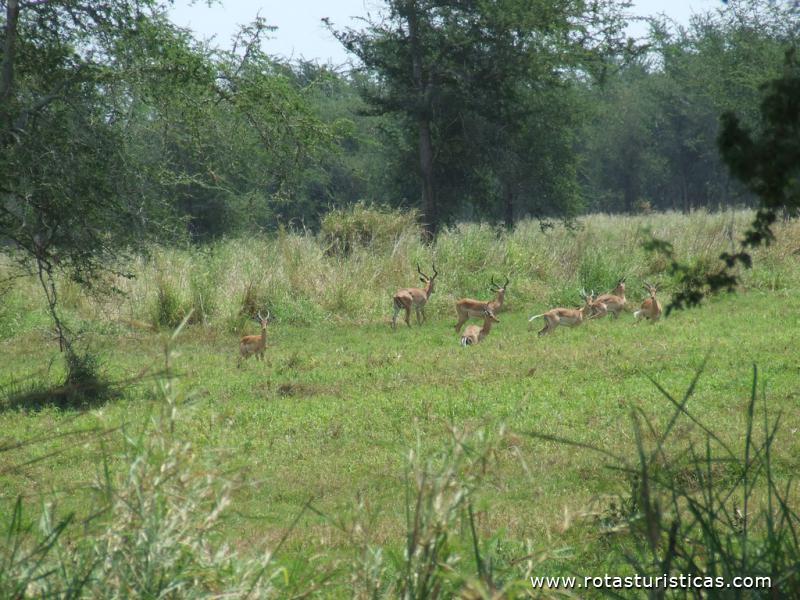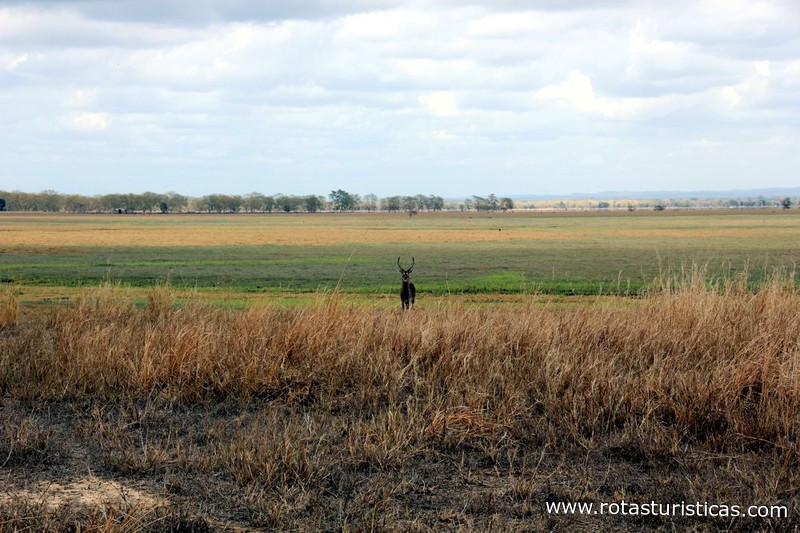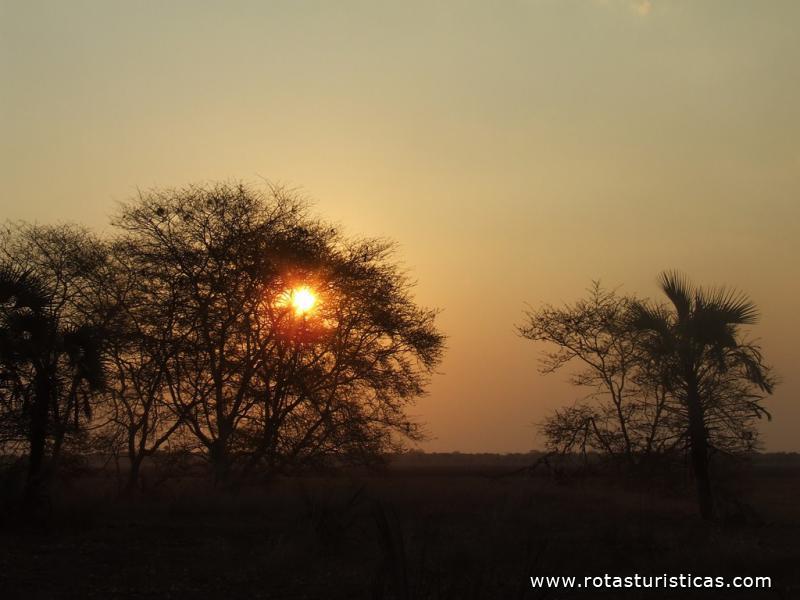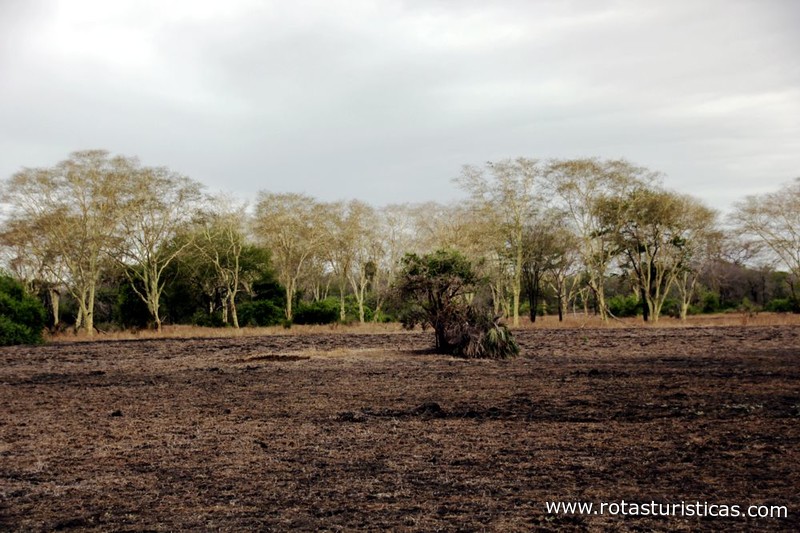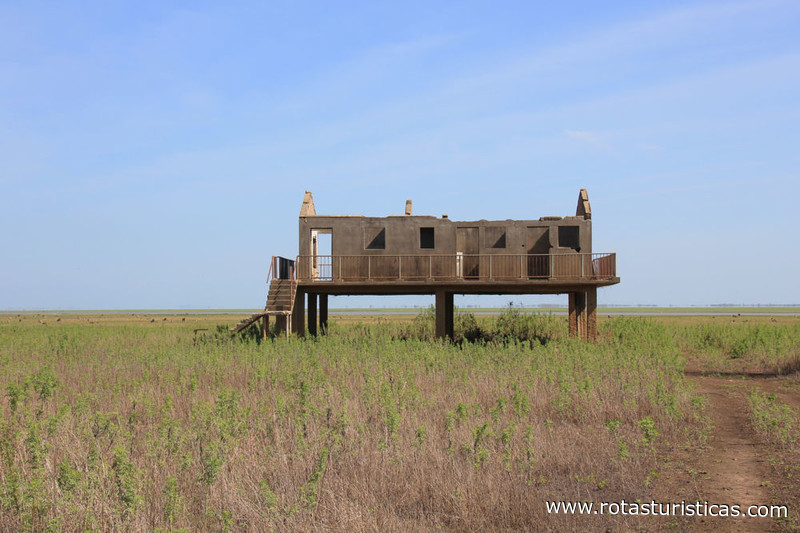Pictures of: Gorongosa National Park
Location map
Airports
Hotels and other Accommodation
What to visit
World Nomads
The Travel Insurance with the largest coverage

The Travel Insurance with the largest coverage

Gorongosa
Gorongosa is a village in the province of Sofala in Mozambique, being the seat of the district of the same name. Before the independence of Mozambique the village was named Vila Paiva de Andrade.
Gorongosa is also the name of Mozambique's first and best-known park: Gorongosa National Park.
According to one source, the name of Gorongosa was attributed by the population coming from Báruè, north of the province of Manica that settled in the mountain range of Gorongosa in search of survival in the last century. Some of them tried to climb to the top but lost their lives mysteriously. That is why the place was considered dangerous and called "Kuguru Kuna N'gozi", the same as "there is danger there" in the local language. Later the name was given to Gorongosa.
Gorongosa is also the name of Mozambique's first and best-known park: Gorongosa National Park.
According to one source, the name of Gorongosa was attributed by the population coming from Báruè, north of the province of Manica that settled in the mountain range of Gorongosa in search of survival in the last century. Some of them tried to climb to the top but lost their lives mysteriously. That is why the place was considered dangerous and called "Kuguru Kuna N'gozi", the same as "there is danger there" in the local language. Later the name was given to Gorongosa.
Tourism
Whether you enjoy harder or softer experiences, Gorongosa has something to offer everyone. You will not find paved roads and traffic jams around animals that are hyper-habituated to human presence. This is a Wild Africa and, for now, you can still enjoy it just for yourself! And remember: by visiting this magical place on a magical land, you are directly helping one of the most important conservation efforts in Africa.
In Gorongosa Park you will be driven into the bush in time to see the sunrise. At this hour the light is a dream for lovers of photography, with golden rays peeking among the yellow acacia trees. Around it the forest is flooded with the unforgettable morning chorus of Gorongosa: an atmosphere full of bird songs. In the alluvial plain, the huge unhappy ones appear like ghosts in the middle of the morning fog. At this point Gorongosa's indomitable wildlife is awakening to a new day. What attentive soldiers patrolling a jungle full of hidden enemies, large flocks of dog monkeys cautiously abandon the safety of trees to feed on the savannah. Wading birds take their places on the banks of the rivers to look for their first meal of the day. In the treetops, a fishing eagle turns its head and throws one of the most unmistakable cries of the dawns of Gorongosa. If you are lucky, you will see lions coming back from a nighttime hunt: bloody noses, dilated stomachs, looking for a good shade to rest and sleep.
In the company of a qualified Local Safaris Guide, you will explore more than 100 kilometers of bites in a Toyota Landcruiser with high safari seats - suitable for better viewing animals and for shooting with wide-ranging lenses. The morning safaris depart at 6 am and last for 3 hours.
Join the local guides for a relaxing two-kilometer walk from the campsite to the cozy Wine Village where you can enjoy life in rural Africa. Stroll through the corn and cassava fields and learn about the importance of agriculture for the region. Bird enthusiasts should keep an eye out for Red Cardinals who are regularly seen in the area.
In just 30 minutes the safari jeep will take you from Chitengo to Bué Maria, a rocky hill with a spectacular view over the Pungwe, a broad river that flows slowly from Zimbabwe's highlands to Beira, where it drains into the Indian Ocean . The ruined walls of the former colonial cotton warehouse here have been taken over by nature, with trees now growing toward the sky where once there was a roof.
In Gorongosa Park you will be driven into the bush in time to see the sunrise. At this hour the light is a dream for lovers of photography, with golden rays peeking among the yellow acacia trees. Around it the forest is flooded with the unforgettable morning chorus of Gorongosa: an atmosphere full of bird songs. In the alluvial plain, the huge unhappy ones appear like ghosts in the middle of the morning fog. At this point Gorongosa's indomitable wildlife is awakening to a new day. What attentive soldiers patrolling a jungle full of hidden enemies, large flocks of dog monkeys cautiously abandon the safety of trees to feed on the savannah. Wading birds take their places on the banks of the rivers to look for their first meal of the day. In the treetops, a fishing eagle turns its head and throws one of the most unmistakable cries of the dawns of Gorongosa. If you are lucky, you will see lions coming back from a nighttime hunt: bloody noses, dilated stomachs, looking for a good shade to rest and sleep.
In the company of a qualified Local Safaris Guide, you will explore more than 100 kilometers of bites in a Toyota Landcruiser with high safari seats - suitable for better viewing animals and for shooting with wide-ranging lenses. The morning safaris depart at 6 am and last for 3 hours.
Join the local guides for a relaxing two-kilometer walk from the campsite to the cozy Wine Village where you can enjoy life in rural Africa. Stroll through the corn and cassava fields and learn about the importance of agriculture for the region. Bird enthusiasts should keep an eye out for Red Cardinals who are regularly seen in the area.
In just 30 minutes the safari jeep will take you from Chitengo to Bué Maria, a rocky hill with a spectacular view over the Pungwe, a broad river that flows slowly from Zimbabwe's highlands to Beira, where it drains into the Indian Ocean . The ruined walls of the former colonial cotton warehouse here have been taken over by nature, with trees now growing toward the sky where once there was a roof.
Gastronomy
The basis of Mozambican food is corn. From this cereal is made a mass that in the south is called ushwa, in the center and north chima. This pasta is accompanied by vegetable sauces, such as cacana and mboa, and also by seafood, especially shrimp. Dry fish is also widely used.
Typical products are piri-piri, sesame, peanut, cashew, coconut, etc. In beverages there are distilled spirits such as nipa and katchulima, among others. Also make corn beers, mapira, palm tree etc. There are also cashew, and canho juices.
Typical products are piri-piri, sesame, peanut, cashew, coconut, etc. In beverages there are distilled spirits such as nipa and katchulima, among others. Also make corn beers, mapira, palm tree etc. There are also cashew, and canho juices.
Weather
Gorongosa National Park is closed during the rainy season (usually December-March). The annual precipitation is around 1,000 - 1,400 millimeters per year. Temperatures in the summer are averaging 30-40 degrees celsius at high humidity, while the winter months are around 20-30 degrees Celsius.
Other tourist destinations in:
Mozambique
Mozambique
Other world tourist destinations
Why to book with TRAVEL CLUBE
The best prices
Our partnerships with the world´s largest operators offer research on the best market prices.
More options
At Rotas Turisticos you can book the hotel, buy the air ticket, book the transfer from the airport to the hotel and vice versa, book the local excursions, rent the car, take travel insurance and consult the places to visit and where to go.
Holiday Tips & Destinations
Hundreds of holiday destinations with all the options that allow you to easily choose the destination that best suits your dream vacation.
TRAVEL CLUBE
Links

